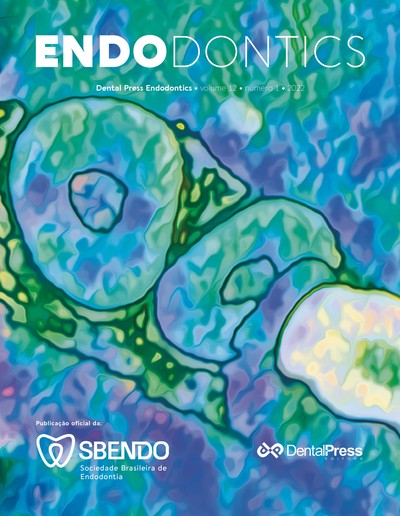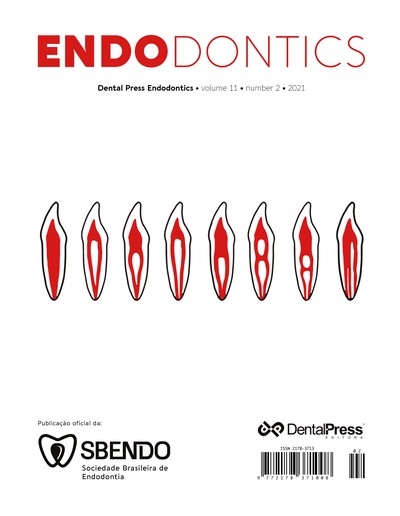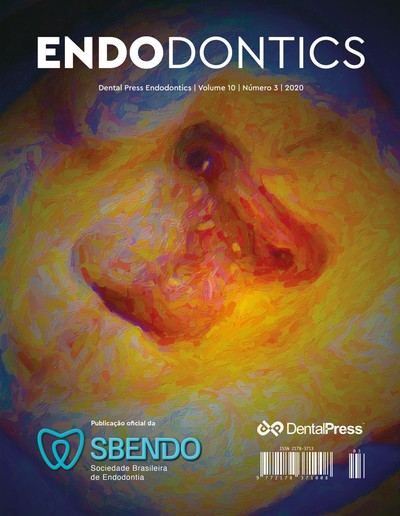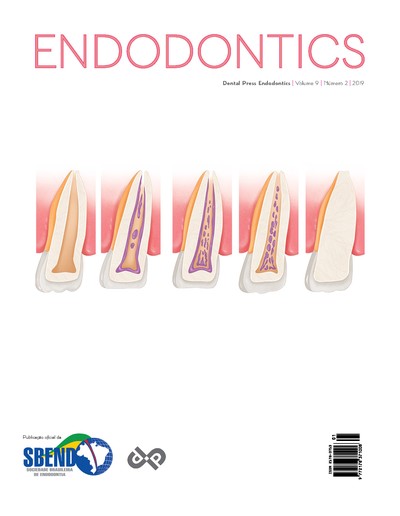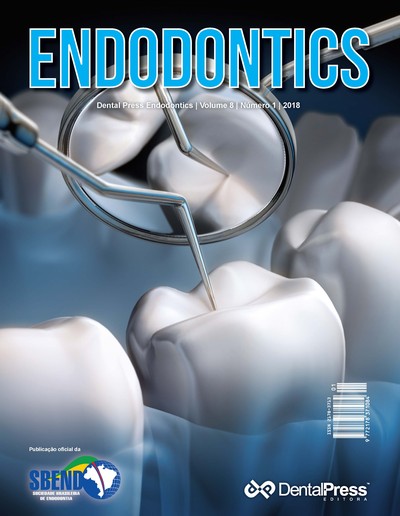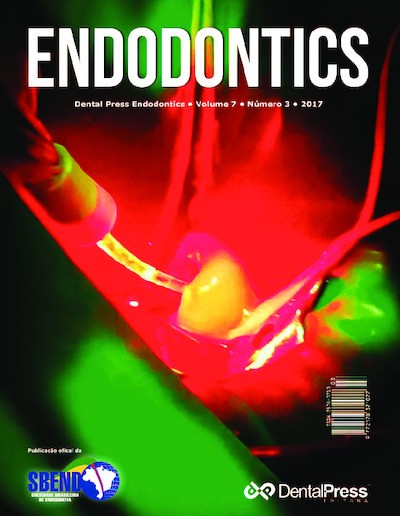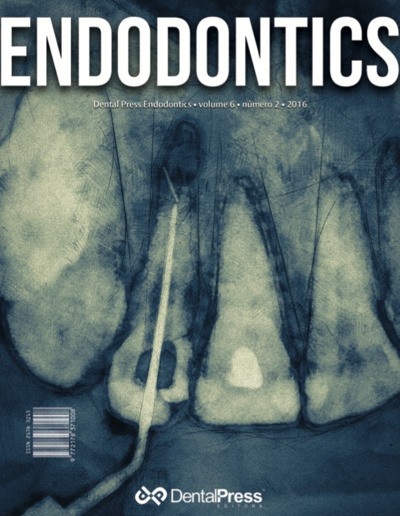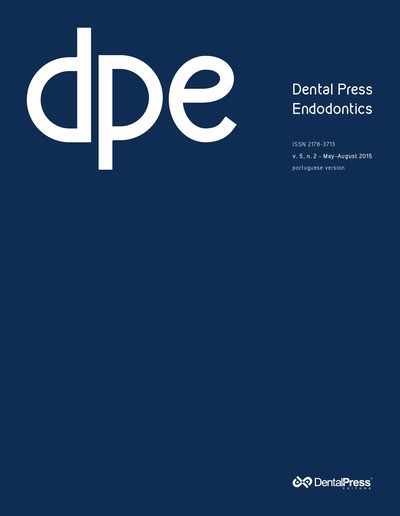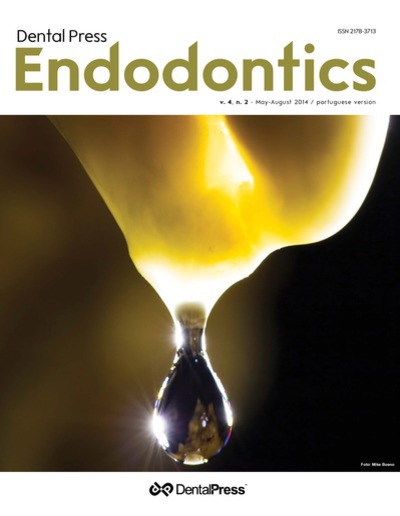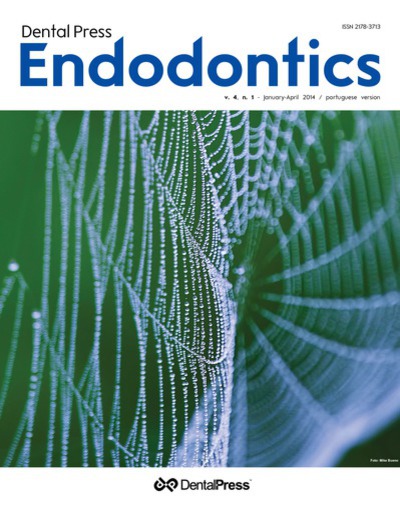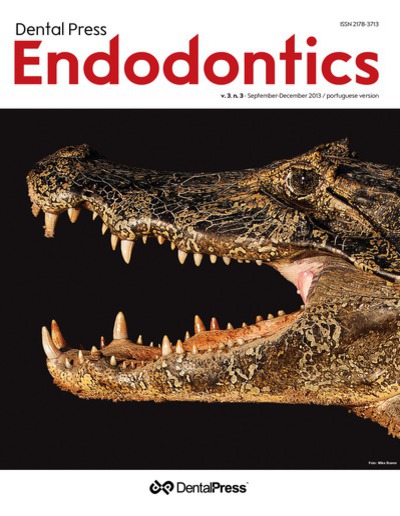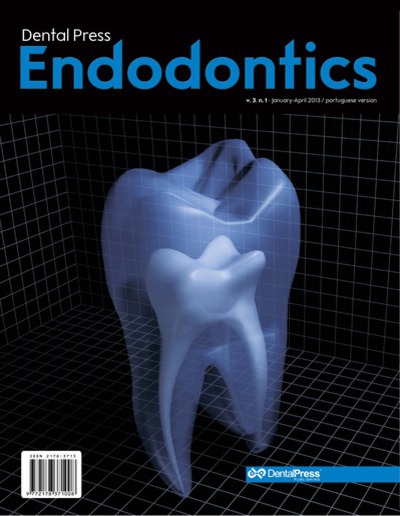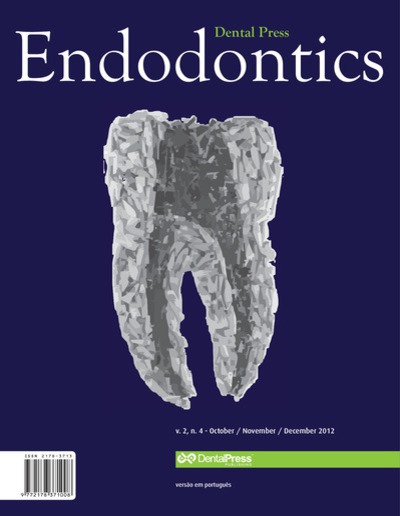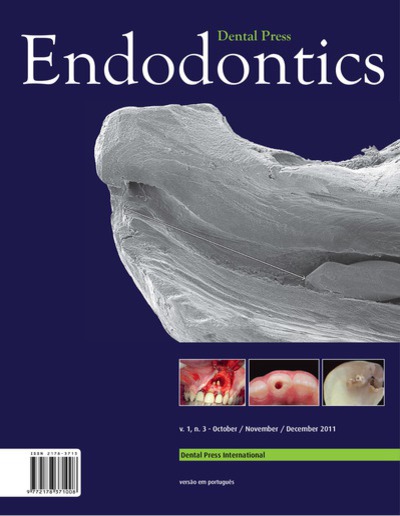
Mechanical properties of WaveOne and ProTaper instruments in relation to torsion, hardness a n d tenacity
Cíntia Bueno De Paula, Victor Talarico Leal, Renata Gonçalves Soares, Hélio Pereira Lopes
Objective: This study evaluated the torsional fracture strength of two brands of machined NiTi instruments with different geometric shapes and produced with different metal alloys. Material and Methods: Fifteen WaveOne Large and fifteen ProTaper F4 instruments were selected and subjected to mechanical torsion, Vickers microhardness and toughness test. In the torsion test, angular deformation until fracture and maximum torque were evaluated. The fractured surfaces and helical rods of the instruments were analyzed by scanning electron microscopy (SEM). Results: The values of the maximum torsion torque (N/cm) was higher for WaveOne. The Vickers microhardness values were higher for the NiTi M-Wire alloy, while the control group showed higher toughness. Student’s t-test showed a significant difference in the torsion tests (p<0.05), toughness and Vickers microhardness. SEM analysis revealed plastic deformation along the helical coils of all fractured instruments and ductile type fracture. Conclusion: The instruments manufactured in NiTi M-Wire presented higher resistance to fracture by torsion and microhardness, in comparison to those of conventional NiTi. Due to the higher torsion angle of the ProTaper and greater deformation to fracture, these parameters make this instrument safer from a clinical standpoint.
Keywords: Endodontics. Dental instruments. Alloys.
How to cite: Paula CB, Leal VT, Soares RG, Lopes HP. Mechanical properties of WaveOne and ProTaper instruments in relation to torsion, hardness and toughness. Dental Press Endod. 2017 May-Aug;7(2):46-54. DOI: https://doi.org/10.14436/2358-2545.7.2.046-054.oar
Wednesday, February 05, 2025 05:45
